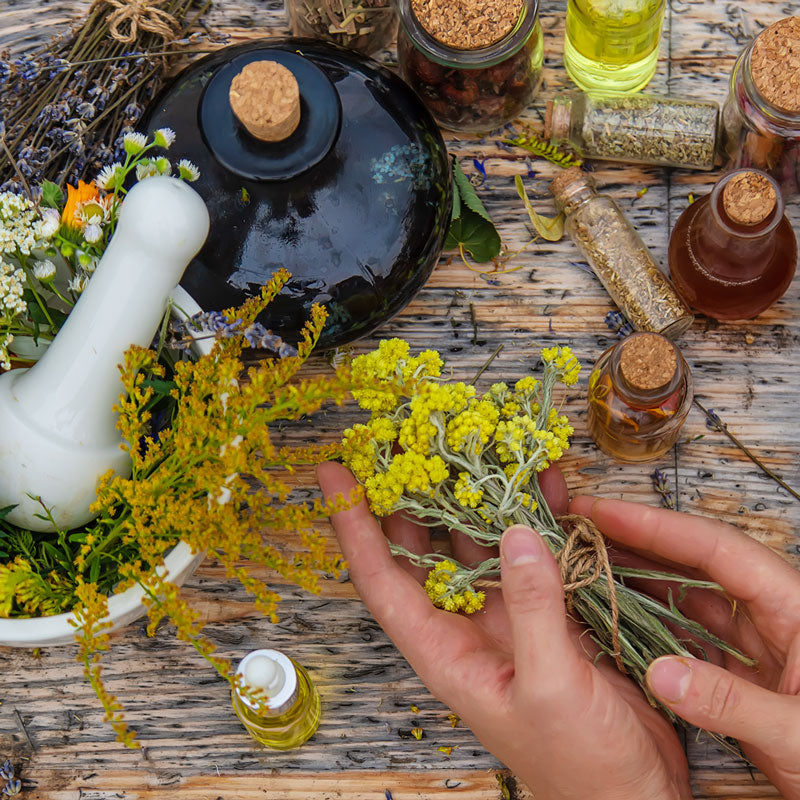The Legacy of Assyrian Herbalism

For centuries, Assyrian herbalism has been a crucial part of the Mesopotamian medical tradition, with practices deeply rooted in a blend of empirical observation, spiritual beliefs, and mythical narratives. In the modern era we use food grade ethanol for extracting the beneficial properties of plants, but this blog delves into the legacy of Assyrian herbalism over the past 1000 years and how this ancient knowledge has contributed to modern herbalism and naturopathy.
Herbalism in Ancient Assyria
A significant aspect of Assyrian culture was the profound reverence for nature, considering it a direct manifestation of divine power. Herbs were not merely plants; they were powerful tools provided by gods. Assyrian priests, known as "asu," combined spiritual rituals with practical applications of herbs to heal the sick, placing a strong emphasis on the therapeutic power of incantations and prayers alongside herbal remedies.
Techniques and Practices
One of the most striking features of Assyrian herbalism was their systematic approach to cataloging their knowledge. The Assyrians used cuneiform tablets to document a wide array of medical texts, including "recipe" style instructions for preparing herbal treatments. These texts include descriptions of symptoms, diagnoses, prognoses, and treatments, marking some of the earliest known attempts at a systematic approach to healthcare.
Their preparation methods were complex, often involving a combination of herbs. Some were crushed into powders, others made into salves or balms, and some brewed as potent concoctions. The practitioners would recite incantations while preparing and administering these treatments, adding a spiritual dimension to the healing process.
Contribution to Modern Herbalism and Naturopathy
The Assyrian holistic approach towards health resonates strongly with the principles of modern naturopathy, acknowledging the inseparable connection between the physical, mental, and spiritual aspects of wellbeing.
Their meticulous documentation of herbs and their uses have significantly influenced the development of pharmacology. For instance, Assyrian tablets describe the use of willow leaves and bark for pain relief, a practice that led to the development of modern-day aspirin.
While the Assyrians used a wide variety of herbs, some that have stood the test of time include:
- Myrrh: Used for its antiseptic and anti-inflammatory properties, myrrh is still widely used in mouthwashes and for wound healing.
- Licorice: Used as a harmonizer in remedies, licorice is now recognized for its anti-inflammatory and immune-supportive properties.
- Poppy: Assyrians used the opium poppy for pain relief, a practice that led to the development of opiate medicines.

Assyrian herbalism embodies an ancient wisdom that has traveled across centuries, influencing our understanding of healing and the use of natural remedies in modern herbalism and naturopathy. The techniques and practices inherited from Assyria offer a unique perspective, celebrating the holistic, interconnected nature of health and wellness.








